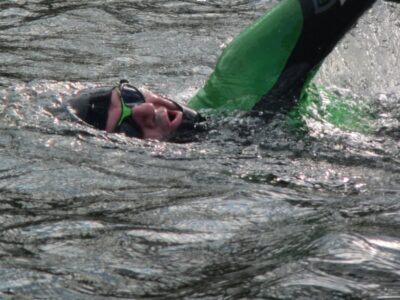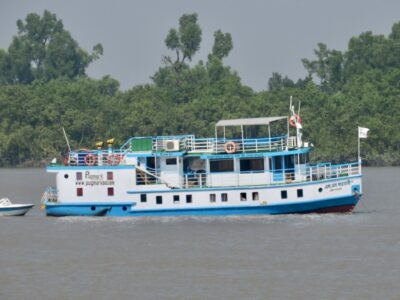By Jeffrey Fralick

Sara Tjossem is a senior lecturer in the Master of Public Administration program in Environmental Science and Policy, and the program’s associate director of curriculum. Before coming to SIPA, Tjossem taught history of science at the University of Minnesota, acted as assistant director of the Institute of Social, Economic and Ecological Sustainability, and served as both lecturer and capstone instructor in history and in the Program on the Environment at the University of Washington, Seattle.
Can you tell me about your background and research interests?
As an undergraduate I debated whether I should major in biology or history, and chose biology. Only in graduate school at Cornell did I realize I could do both in the field of history of science, and the topic of environmental policy. My earliest research was in biology, with smooth newts and other aquatic communities, but as I shifted into history of science, I examined how an international organization helped marine scientists build their research programs.
Can you tell me about your role/history with the ESP program?
I arrived to New York City and Columbia from the University of Washington’s Program on the Environment in 2003. Professor Steve Cohen had recently founded the Master of Public Administration in Environmental Science and Policy (MPA-ESP), and it was an excellent fit for my training and interests in history of science and environmental policy. I serve as the MPA-ESP’s associate director of curriculum.
Can you tell me more about your Struggles for Sustainability course?
Through SIPA I offer an elective course with the full title of “Struggles for Sustainability: Food, Farming and Famine.” It’s a fun course that combines history, ecology, and policy. I provide a historical and thematic framework within which students can explore their particular interests in the intersections of science and technology, and sustainable farming.
This semester, you are a faculty advisor for MPA-ESP’s Workshop in Applied Earth Systems Policy Analysis. Can you tell me more about the project you are involved with?
One of the things I love about being part of the Environmental Science and Policy Program is being faculty mentor to a small team of students as they carry out a policy analysis for a real-world client. For Spring 2019, I am supervising a team that is helping Greenpeace International and its Global Climate Political Task Force create a common political strategy on climate change. The students are developing a methodology to help Greenpeace International identify countries, sectors, and policies that will help minimize adverse global climate change.
Is there any work you are currently involved in, related to either of the courses you are teaching?
My research interests help shape my courses, and my courses help frame my research questions. For example, my current research project is on the foundation and development of a sustainability institute in Finland called HELSUS. HELSUS is a network that brings together science and humanities faculty from across the University of Helsinki to create new ways of thinking about what constitutes sustainability.
Are there any extra details you would like to add about your courses that might interest students in enrolling?
One of my other courses, “History of Ecology and Environmentalism,” explores the rise and development of ecology as a scientific field and its contribution to modern environmental politics. We discuss how science shapes humans’ conceptions of nature, and the idea of a “sustainable” society.
Jeffrey Fralick is a graduate student in the School of Professional Studies’ Sustainability Science program and a current intern for Steve Cohen at The Earth Institute. Jeffrey has a background in climate change and environmental and sustainability sciences with a concentration in Land and Water Resource Management.
Students in the MPA in Environmental Science and Policy program enroll in a year-long, 54-credit program offered at Columbia University’s School of International and Public Affairs, in partnership with the Earth Institute.
Since it began in 2002, the MPA in Environmental Science and Policy program has given students the hands-on experience and analytical and decision-making tools to implement effective environmental and sustainable management policies. The program’s some 800 alumni have advanced to jobs in domestic and international environmental policy, working in government, private and non-profit sectors. Their work involves issues of sustainability, resource use and global change, in fields focused on air, water, climate, energy efficiency, food, agriculture, transportation and waste management. They work as consultants, advisers, project managers, program directors, policy analysts, teachers, researchers and environmental scientists and engineers.
Follow the Master of Public Administration in Environmental Science and Policy on social media: Facebook, Instagram, Twitter. Register here for upcoming information sessions and events or join our mailing list for updates.



